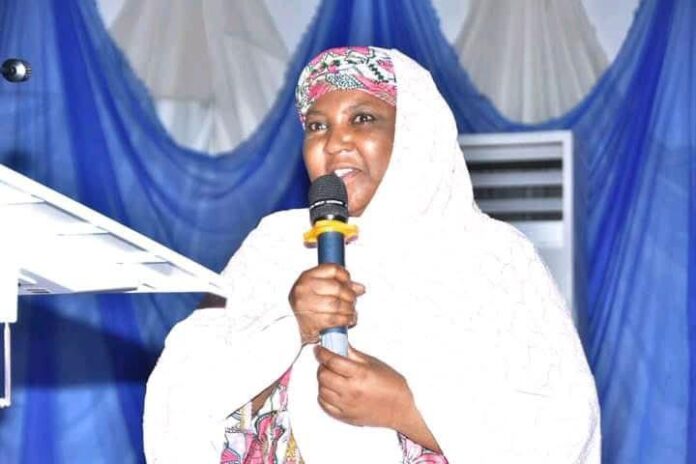The Google Gauntlet and the Grandfather’s Trust: An African lesson in peace, by Dr Hauwa Mohammed Sani
I thought I was making a simple, kind gesture— choosing an older gentleman’s cab late one night after a long flight. I figured it would be an easy ride. What unfolded next wasn’t just a navigation problem; it was a bizarre, real-time collision between the old way of the world and the new, AI-driven one. This true story of a taxi ride truly happened to me last week.
It was late, the kind of late where the airport lights look sickly and the air is thick with fatigue. I needed a ride. Looking over the line of sleek, modern taxis, my eye landed on one driven by an old man—a true gentleman of the road, old enough to be my own grandfather. A small surge of pity, mixed with a desire to give him the fare, made me choose him. Little did I know, I wasn’t just hopping into a cab; I was walking into a generational drama.
The man knew the general area of my destination, but finding the exact estate became an odyssey. We drove, we turned, we asked passersby—a frantic, real-world search in a fog of darkness and street names. Frustrated, I reviewed the apartment information on my phone and saw a contact number within the address details. I called it.
The voice on the other end was bright and American. “Oh, that’s my apartment, but I live in the U.S.,” she cheerfully informed me. “I’ll have someone call you.”
True to her word, a local contact called back. “I’ve sent you the location,” she said. “Just Google it.”
READ ALSO: A wake-up call for graduates, by Hauwa Mohammed Ali
And there was the rub. My driver—a man whose mind held a living map of the city’s every alley and backstreet—and I, a modern traveler, stared at each other. Neither of us was familiar with using Google Maps.
The poor old man was desperate. “What are the landmarks? Describe the building!” he pleaded into the night air. The girl on the phone, however, was stubbornly one-dimensional: “Just follow the GPS. Google the location.”
That’s when it hit us both. In that moment, the taxi cab became a time capsule. Here were two people operating on landmarks, intuition, and human description, battling against an AI-generation that has completely outsourced its sense of direction. Simple communication—a left at the bakery, a right past the big tree—was utterly lost.
The driver was absolutely fuming. He kept grumbling, “Where is our sense of reasoning? They’re being programmed by the machine!” To him, this reliance on tech wasn’t progress; it was the crippling of a fundamental human skill. He saw creativity and simple reason dying—replaced by a glowing screen that gives an answer but can’t hold a conversation.
We eventually found the place, not by Google, but by a final, desperate, human description from a local. But the lesson lingered: Technology is fantastic, but sometimes, when it replaces basic common sense, it really can feel useless. We need to remember how to read the world, not just the map.
READ ALSO: Hauwa and her transdisciplinary approach to scholarship, by Kenny Ola
The Climax: The Race for the Flight
The next day, it was time for my return. The old man—who I now affectionately called Papa—had promised to pick me up. He came, but he was late. I kept calling, reminding him of my flight and the town’s busy roads. He assured me we would take an “outskirt” route with no traffic.
We found otherwise.
The clock was racing, and the roads were choked. In his confusion, the poor man even pulled into a station to buy fuel, a detour that felt catastrophic. But the beautiful part? He kept accepting his mistakes. He was frantic, not defensive. We kept running against the clock, fueled by mutual anxiety.
By the time we reached the terminal, the counter was closed.
“Hajiya,” he said, using the Hausa honorific reserved for me, the Yoruba man’s passenger. “Don’t worry about the fare. Just run. Run and make your flight first.”
I rushed in and had to beg the counter staff to issue my ticket. I became the last passenger on the flight, all thanks to a desperate sprint.
The Unbreakable Trust
That moment of panic was eclipsed by a display of profound, inter-tribal trust. Here was Papa, a Yoruba man, sending off Hajiya, a Hausa woman, without a dime for his service, instructing me not to worry about payment until I was safely at my destination.
He kept calling me after I took off, checking on my travel and praying I made my connection. Not once did he mention money.
It wasn’t until I reached out and said, “Papa, please send me your account details,” that the drama of the day resumed (as expected, getting that detail was another adventure!). But in the long run, I paid Baba a generous amount—one he met with a flood of heartfelt prayers for my future.
READ ALSO: A Tribute to My Beloved Aunt — Hauwa Kulu Suleiman (1970 – 2024), by Maryam Rabiu
This journey, from a confusing GPS battle to a race against the clock, taught me the greatest lesson: amidst all the conflict and generational friction, there is still peace and trust in connection. As I work on our research for the University of Essex London on conflict resolution and prepare for my ‘Build Peace’ conference in Barcelona, I realise that sometimes the greatest examples of peace aren’t in treaties, but in a simple promise between a Yoruba taxi driver and his Hausa passenger.
Hauwa Mohammed Sani, PhD, is the Deputy Director, Institute for Development, Research &Training, Ahmadu Bello University, Zaria and can be reached at:
Email: hauwamohammedsanim@gmail.com
Follow the Neptune Prime channel on WhatsApp:
Do you have breaking news, interview request, opinion, suggestion, or want your event covered? Email us at neptuneprime2233@gmail.com





